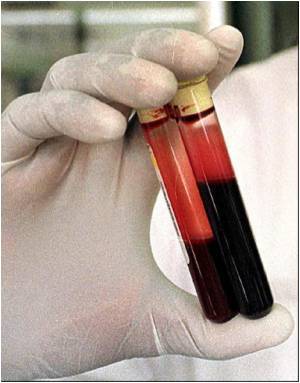Scientists claim that filtering the foreign white cells from donor blood reduces cardiopulmonary complications for patients who have received transfusion.

The observational study was conducted during the seven years before and after 2000, when the URMC introduced universal leukoreduction, a process that filters the white cells from blood to be used for transfusions.
Researchers looked at the number of reports of transfusion reactions during the 14-year period, and divided them by the total number of blood components transfused (778, 559).
Rates of acute, transfusion-related lung injury dropped 83 percent in the years after filtering took place, and transfusion-associated circulatory overload declined 49 percent, when compared to the rates prior to the year 2000.
Both conditions are rare, but are among the most common causes of death following a transfusion.
"These data are very exciting because we described two unexpected and unexplained associations between adverse reactions and leukoreduction. However, our observations do not prove cause and effect, and therefore require further investigation before we can say with certainty that leukoreduction is responsible for so many fewer cardiopulmonary complications," said Blumberg.
Advertisement
Earlier, the researchers have shown that the odds of post-surgical infection and death are greatly reduced by leukoreduction.
Advertisement
The study is published online in the journal, Transfusion.
Source-ANI












